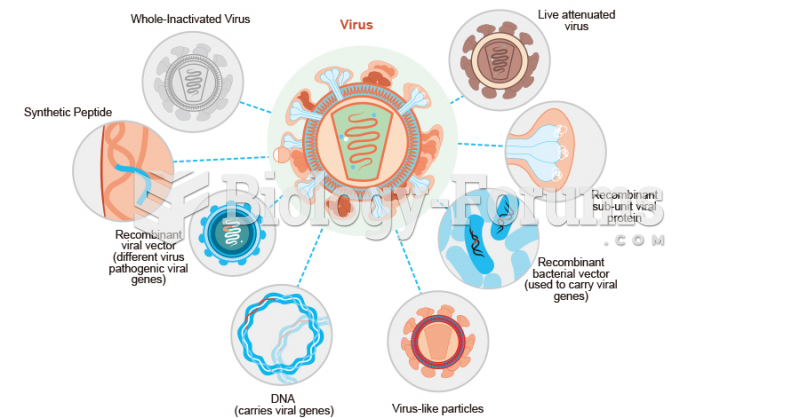|
|
|
The Romans did not use numerals to indicate fractions but instead used words to indicate parts of a whole.
The most common treatment options for addiction include psychotherapy, support groups, and individual counseling.
The heart is located in the center of the chest, with part of it tipped slightly so that it taps against the left side of the chest.
Studies show that systolic blood pressure can be significantly lowered by taking statins. In fact, the higher the patient's baseline blood pressure, the greater the effect of statins on his or her blood pressure.
About 80% of major fungal systemic infections are due to Candida albicans. Another form, Candida peritonitis, occurs most often in postoperative patients. A rare disease, Candida meningitis, may follow leukemia, kidney transplant, other immunosuppressed factors, or when suffering from Candida septicemia.







